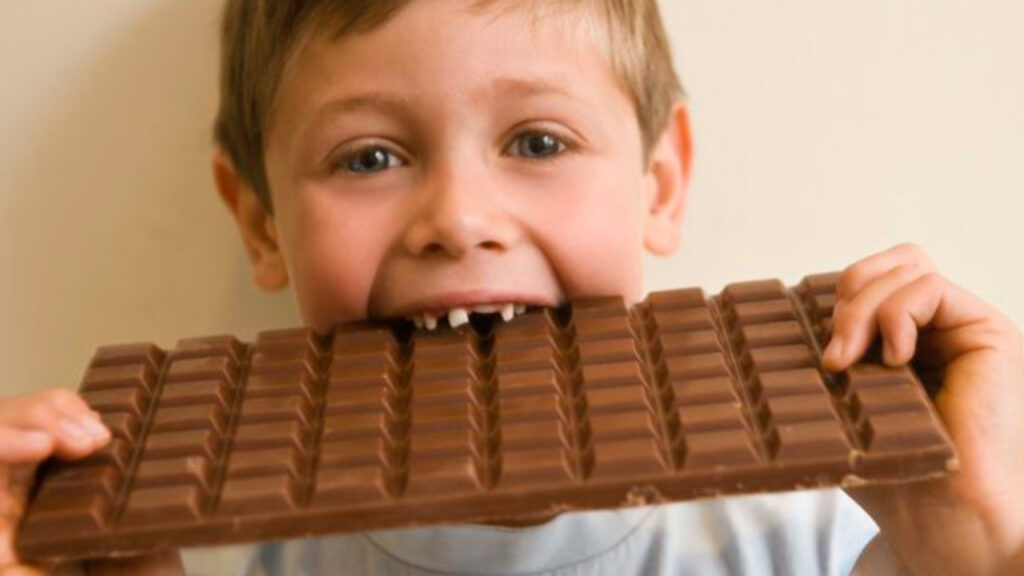Health
Chocolate is a favorite treat among children around the world. Its sweet taste and wide variety milk, dark, white, and more make it a popular snack for all ages. While eating chocolate occasionally is not necessarily harmful, consuming too much can have negative effects on children’s health.

High Sugar Content
One of the biggest concerns with chocolate is its high sugar content. Most chocolates, especially milk and white chocolate, are loaded with added sugars. When children consume excessive sugar, it can lead to a number of health problems. Tooth decay is one of the most immediate concerns. Sugar feeds bacteria in the mouth, leading to cavities and gum problems. Over time, high sugar intake can also contribute to obesity, which puts children at risk for other issues like type 2 diabetes and heart disease.
Caffeine and Stimulants
Chocolate contains caffeine and theobromine—both are stimulants. While the amounts in a single chocolate bar may be low, eating large amounts can cause children to experience restlessness, difficulty sleeping, or even anxiety. Children are more sensitive to these substances than adults, so even moderate amounts can impact their behavior and mood.
Displacement of Nutritious Foods
Another issue with eating too much chocolate is that it can replace healthier foods in a child’s diet. If children fill up on sweets, they may eat fewer fruits, vegetables, whole grains, and proteins. This can lead to nutrient deficiencies over time, affecting growth, development, and overall energy levels. Chocolate does contain some beneficial nutrients, like iron and magnesium, but these do not outweigh the downsides when consumed in excess.

Possible Allergies and Additives
Many chocolates also contain ingredients like nuts, dairy, and artificial additives, which may cause allergic reactions in sensitive children. Additionally, some processed chocolates contain trans fats, preservatives, and artificial flavors that are best avoided in a healthy diet.
Encouraging Healthy Habits
Parents and caregivers can help children develop a balanced approach to sweets. Teaching moderation is key. Chocolate can be included as an occasional treat rather than a daily habit. Homemade or dark chocolate with lower sugar content can be a better alternative. Involving children in choosing healthier snacks also encourages better eating habits.
While chocolate can be enjoyed in small amounts, eating too much can have harmful effects on children’s physical and emotional well-being. By setting limits and offering healthier options, parents can help their children enjoy sweets responsibly and maintain a balanced diet.





